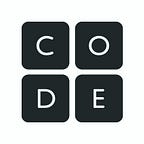5 questions with D. E. Shaw Group’s Anne Dinning
In honor of Women’s History Month, we’re profiling women in technology throughout the month of March. We hope sharing these stories will encourage girls and young women to start or continue studying computer science!
Our Women’s History Month series is coming to a close today with a final interview with Anne Dinning. Anne received her PhD in computer science from New York University, and then started working at D. E. Shaw group, an investment firm based in New York City, in 1990. Now, she’s part of the firm’s executive team. From finance to farming, computer science can be applied to any field!
Let’s hear from Anne.
Can you tell us where you work and what you do in your current role?
I currently work at the D. E. Shaw group, an investment firm based in New York City. Back when the firm started in 1988, we were one of the first to use mathematical models to invest in the markets in a systematic way. Now, over thirty years later, computational finance is still at the heart of what we do, although we have evolved to utilize many other strategies as well. I joined the company in 1990, after completing my PhD in Computer Science at NYU, to do quantitative research in global stock markets. These days, I’m a member of the five-person Executive Committee that runs the firm. We have about 1,700 employees, including a large long-term presence in Hyderabad, India.
How did you first become interested in computer science?
When I started college in 1980, I thought I might want to be an accountant (and as a child I wanted to be a librarian). However, during a term abroad in my freshman year, I met a fellow traveler on a train and we started chatting. Over the course of a few hours I learned a little bit about what a computer programmer did. The closest I had gotten to a computer at that point was the bubble sheet for my SAT! But I was intrigued by the idea of a career that would involve solving real world problems, and one that would allow me to work almost anywhere. When I got back to college in the fall, I signed up for my first computer science course.
What barriers, if any, did you encounter on your journey learning computer science? What barriers, if any, do you still encounter in the workplace?
I went into the field in college as a complete novice so I did have some catching up to do, but by the end of the introductory course I was sure computer science was what I wanted to pursue as a career. During college I felt isolated at times — none of my friends knew anything about computers (they were more focused on their Psychology 101 course or summer internships at Ernst and Young). Beyond that, computer science was already a field dominated by men, and during my college and doctoral programs, there was rarely more than one other woman in my classes. I had to learn to be comfortable studying and working in a very male-dominated environment.
Can you tell us about someone (or a group or organization) who encouraged you to study computer science?
There have been many people who have encouraged me on my journey. Of course, the stranger on the train sparked my interest in the field, but I was lucky to have a college professor who encouraged me to apply to graduate school. Up to that point, I didn’t see myself as a person who would go on to get a masters or PhD. But he was so confident that I should keep studying computer science that I took my GREs and enrolled in a graduate program the following year. I still remember getting the acceptance letter from NYU and feeling as though my life was taking a turn into a very exciting (and somewhat scary) direction.
Do you have any advice for girls or young women who want to start learning computer science?
My biggest piece of advice is that it’s never too late: if you’re interested now, then now is the perfect time to start! Also, it’s ok if you don’t look or act like what you think a programmer is supposed to be like. There are many many ways to get involved in and use computer science — and very likely one that will fit your interests and ambitions. Finally, I’m glad that learning CS no longer has to be isolating — there are great organizations that can help you find a community within the field, no matter where you’re coming from.
Thank you, Anne! This is the final installment in our Women’s History Month blog series. You can also read our previous interviews featuring Limor Fried, Sanaz Ahari Lemelson, Sasha Alston, and Jaleesa Trapp.
Find more resources for inspiring girls and young women to learn computer science here.
-Kirsten O’Brien, Code.org
